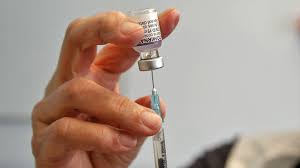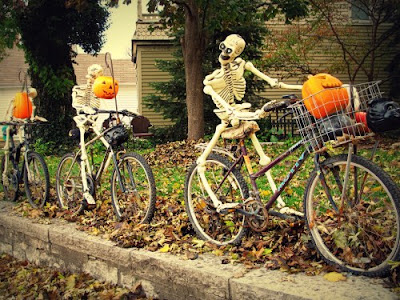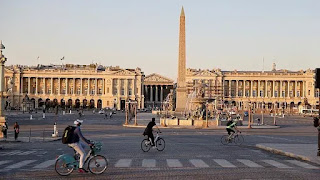I am a transgender woman and a cyclist. That means I belong to two groups of people for whom it means that becoming more visible means having a target pinned on your back.
That's how it seems, anyway. On some jobs, when I've done anything that draws positive attention--whether it's an excellent review, volunteering for a committee or, sometimes, even outside activities, like my writing--some co-workers, including those of higher rank than mine, become Captain Ahabs to my Moby Dick. Until that happens, they congratulate themselves for "tolerating" me. But when I accomplish something through my creativity and hard work, they seem to think that someone like me (or unlike them) isn't supposed to do such things.
Likewise, as cycling for transportation as well as recreation becomes more mainstream, it stokes whatever hatreds and resentments some folks have toward us--or, at least, whatever notions, however unfounded, they have about us. We are seen as taking something--"their" streets or, perhaps, some notion of what it means to live a meaningful and productive life. We are also accused of "not paying taxes" when, in fact, as I pointed out to one driver, we pay more taxes for things we don't use, such as gasoline and highways.
An unfortunate corollary to the things I've described can be seen in the aftermath of recent protests against the ways police, in too many places, treat Black*, Hispanic and Native American people. It seems that, like trans and non-binary folks and cyclists, racial and ethnic minorities--especially Blacks and, in some parts of the country, Native Americans--have similarly been targeted for harassment and violence. Unfortunately, it's no surprise when you realize that the Ku Klux Klan became a force in the wake of Reconstruction, and lynchings and other kinds of violence against Black people surged in the years just after World War I, when large numbers of Black soldiers returned home, and during and after the Civil Rights protests of the 1950s and 1960s.
One parallel between what I've experienced, if less intensely, as a cyclist and trans woman and what Blacks too often endure is that we and they are too often targeted for doing or accomplishing things, or being in a place we're "not supposed to." And, being a member of one of the groups I've mentioned can compound the harassment you might experience as a member of one of the other groups. As an example, one hot day early in my gender-affirmation process (I was on hormones for about two years and had begun living and working as female), a couple of cops pulled me over on some made-up charge while I was riding home. Their interrogation was punctuated by comments like, "I like your bike" and "You have nice legs."
Elliot Reed also experienced an unfortunate confluence of bigotry while he was out for his morning ride two weeks ago. The 50-year-old Texan is not only a cyclist in a car-centric, red-meat state; he is also--you guessed it--Black.
When he stopped at an intersection, 25-year-old Collin Joseph Fries (great name for someone in a red-meat state, isn't it?) drove up along side him. "He was just looking at me at the stop sign," Reed recalls. "He said, 'You need to get out of this neighborhood because you're making a lot of people nervous."
Then Fries upped the ante: "You don't live here, and if I catch you, I'm gonna do something to you."
Reed says he tried to get away and get neighbors to confirm that he indeed lives in the neighborhood. Then he pulled out his cell phone to record the incident. At that point, he recalls, Fries got out of his car and used the N-word. Things went downhill, very quickly, from there.
Several witnesses have confirmed everything I've described so far, and what I'm about to relate. Fries chased Reed, caught him and punched him so hard and so often that he lost consciousness. Those same witnesses reported that Fries continued to punch him even after he lost consciousness.
The attack left Reed with cuts requiring numerous stitches on his face, a broken tooth, fractured cheek bone and a burst blood vessel in his eye.
Now, you might expect that, with all of those witnesses giving essentially the same account, Fries would be facing some serious charges. For the moment, though, he's only been charged with a misdemeanor for aggravated assault. (Is that a Harris County thing? If something is "assault" and it's "aggravated," how can it be called a "misdemeanor?") The District Attorney's office, however, says the investigation is "ongoing" and that it's awaiting medical records of the injuries and other evidence from the investigating officers.
At the very least, I think, Fries should be charged with something more serious related to Reed's injuries--and a hate crime. For that matter, anyone who is attacked because of his or her identity--yes, I include motorists who did what Fries did or pedestrians who push people off their bicycles because their victims are cyclists--should be so charged, and sentenced.
* I am using the term "Black" because I want to include immigrants and descendants from the Caribbean and Africa, as well those who were born here. They, too often, experience the same sort of hostility and violence as African Americans.

























